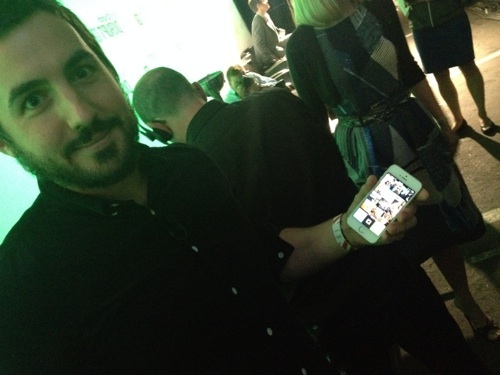Every once in a while someone asks me who I think the best tech bloggers are and why. It happened today, in fact, back stage at TechCrunch Disrupt.
I also have blogging on the mind in general after reading Jason Kincaid’s new book today.
Here’s my short answer – A great tech blogger needs to be exceptionally good at (1) breaking big stories, (2) writing powerful thought pieces, and (3) doing live interviews.
In my mind, there are just three or four great tech bloggers in the world.
The average tech blogger, which is just a commodity, probably isn’t good at any of these things.
They’ll muddle through a story that’s been handed to them, often leaving readers confused and bored. They won’t try to write thought pieces about the state of (or future of) the industry (although they’ll occasionally write outrage articles and think they’re adding to a discussion). And if they’re ever in a position to do a live interview they’ll be nervous, possibly sycophantic and definitely boring.
A good tech blogger, which is someone who’ll develop an independent following on social media and be an asset at any publication, will usually excel at one of the first two categories – either they have enough sources and reporting skills to break stories (you need both), or they’re smart and articulate enough to write interesting columns about technology. But not both. Those people can usually become passably good interviewers, too, once they overcome stage fright and learn to listen.
Then there are the great tech bloggers. These are the bloggers who attract others to them, and are able to build teams and companies around their personalities.
They break big stories without even pausing to watch as everyone else tries to catch up. On a slow news day, or just because they’re feeling it, they’ll write about something that shakes the industry, or focuses everyone’s attention for a time, or from which new companies are born. And they are naturally ferocious interviewers.
Sometimes someone is extremely good at just one category, so good that they rise to the very top of their profession. But for whatever reason they can’t crack the other category. It almost seems like having the skills needed for one category mean it’s much less likely they’ll have the skills for the other.
So when people ask me who the best of the best are, I talk in these terms. This person breaks stories but isn’t a thought leader at all. That person writes fascinating, thoughtful stories but has never broken news. Or they haven’t figured out how to maestro an interview yet.
So who are the legends in the industry today? I’m not going to say, but I’m happy to listen to your thoughts, below.

